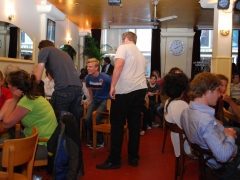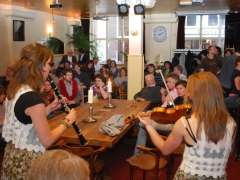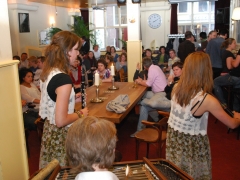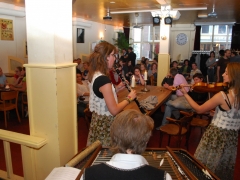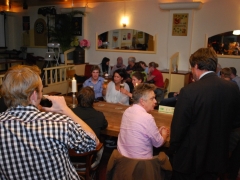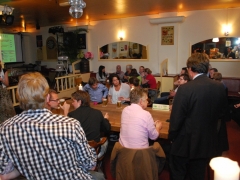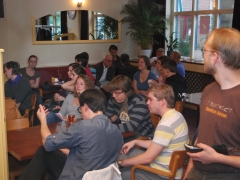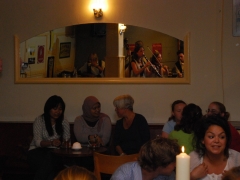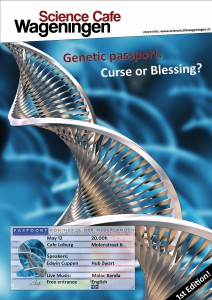
May 12th 2011
Summary
In a not so very distant future it might be perfectly normal to have yourself genetically tested. Maybe even next year you can determine your complete DNA sequence for less than thousand dollar.
For doctors, a whole genome sequence will soon be easier, cheaper and more effective to use than traditional means in diagnosing a disease. For instance, with your DNA sequence your doctor can determine which medicine suits you best. Isn’t that great?
But what if the doctor also finds there is a big chance you will develop cancer? Ouch. Do you want to know that? More generally, who may have and may not access to information about your DNA and your future?
Personal genomics will become more and more interwoven in our society. The benefits for medicine are obvious, but what impact will personal genomics have on our society, our privacy and our definition of humanity?’
In this Science Café we will hear two experts on genomics and its impact on society, and we will discuss the curse and blessing aspects of this revolution in genetics.
Edwin Cuppen
Professor of Human Genetics and head of the Complex Genetics section, Department of Medical Genetics, UMC Utrecht. After graduation in Molecular Life Science at Wageningen University in 1994, Edwin Cuppen obtained his PhD degree at Radboud University in Nijmegen. This was followed by research at the Netherlands Cancer Institute and at the Hubrecht Institute in the group of Prof. Ronald Plasterk. For his work at the Hubrecht Institute Cuppen received the prestigious European Young Investigator award. In 2009 he became professor of Genome Biology at Utrecht University. As an expert on personal genomics Edwin Cuppen will discuss the technical background, future developments and applications of sequencing personal genomes.
Hub Zwart
Professor of Philosophy at the Faculty of Science of the Radboud University and scientific director of the Centre for Society and Genomics. Hub Zwart studied and graduated in philosophy and psychology at the Radboud University in Nijmegen . After working at the Centre for Bio-ethics in Maastricht he became research director at the Centre for Ethics in Nijmegen and later full professor of philosophy at the Faculty of Science of the Radboud University. He conducts research on the interaction of genomics and society and is editor in chief of the Journal for Medicine and Ethics. Hub Zwart will talk about the ethical implications of personal genomics and the interaction between genomics and our society.
The gipsy band Malas Banda of student society WSV Ceres played live music.
Gallery

